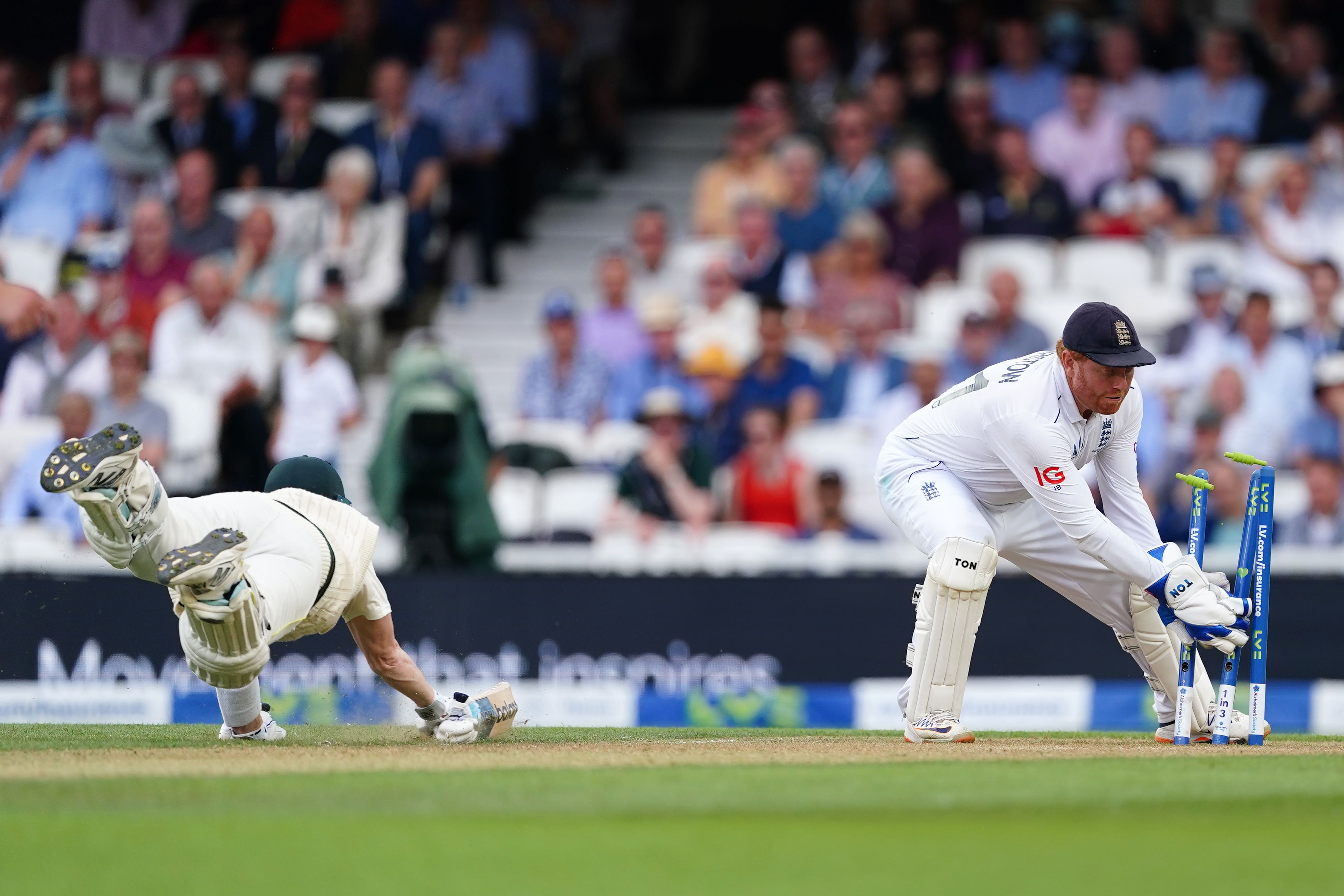George Ealham denied Ashes moment as Steve Smith survives run out controversy
Surrey second-team player George Ealham almost wrote his name into Ashes folklore like Gary Pratt.

Your support helps us to tell the story
From reproductive rights to climate change to Big Tech, The Independent is on the ground when the story is developing. Whether it's investigating the financials of Elon Musk's pro-Trump PAC or producing our latest documentary, 'The A Word', which shines a light on the American women fighting for reproductive rights, we know how important it is to parse out the facts from the messaging.
At such a critical moment in US history, we need reporters on the ground. Your donation allows us to keep sending journalists to speak to both sides of the story.
The Independent is trusted by Americans across the entire political spectrum. And unlike many other quality news outlets, we choose not to lock Americans out of our reporting and analysis with paywalls. We believe quality journalism should be available to everyone, paid for by those who can afford it.
Your support makes all the difference.England substitute fielder George Ealham came agonisingly close to his own Gary Pratt moment during the evening session on day two of the fifth Ashes Test at the Kia Oval.
Ealham, the son of former England international Mark, found himself in the thick of the action from the third ball of the 78th over of Australia’s innings.
Steve Smith looked to complete a risky two against the bowling of Chris Woakes, but Ealham sprinted in from the rope and hurled in a hard, flat throw that forced the Aussie batter to dive to make his ground.
It instantly provoked memories of former Durham staffer Pratt, who memorably ran out Ricky Ponting during the fourth Test of the 2005 Ashes.
Ealham was denied a similar place in Ashes history after TV umpire Nitin Menon eventually ruled Smith remained not out owing to the uncertainty over what was an extremely marginal call.
Australia were on 193 for seven when Smith dropped the ball towards the midwicket region and set off for two runs with captain Pat Cummins.
Smith stumbled briefly on his way to completing the second run and saw England substitute fielder Ealham throw in brilliantly with Jonny Bairstow dislodging the bails.
Before a decision had been made Smith started his walk back to the pavilion having seen that he was short of his ground, but replays showed that Bairstow appeared to nudge one of the bails out of its groove a fraction of a second before taking the ball from Ealham’s throw.
Further replays also demonstrated enough uncertainty over whether both ends of the bail had left their grooves before Smith made his ground with a dive.
It sparked debate and confusion amongst broadcasters but the cold reality was Smith remained at the crease.
The Marylebone Cricket Club, the lawmakers of the game, later published a statement about the decision and referenced Law 29.1.
“The wicket is broken when at least one bail is completely removed from the top of the stumps, or one or more stumps is removed from the ground,” the MCC tweeted.
“Tom Smith’s Cricket Umpiring and Scoring, MCC’s Official Interpretation of the Laws of Cricket, adds: ‘For the purposes of dismissal – a bail has been removed at the moment that both ends of it leave their grooves’.”
Smith was able to add a further 27 runs before he was eventually out for 71 after he top-edged Woakes high into the air with Bairstow taking an impressive catch on the run.